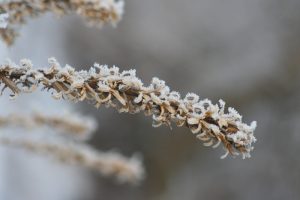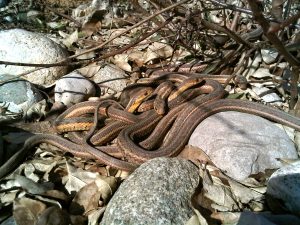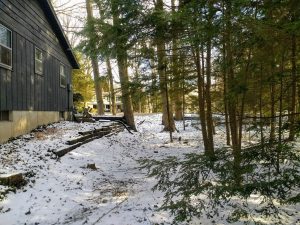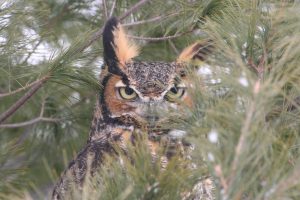By Sarah Irvin, DeGraaf Nature Center

This growing season, you can help reintroduce native plants to our otherwise cultivated landscapes of non-native or invasive plants and monocultures of green grass. Including native species in your yard will bring beauty to your life; benefit our local ecosystem, and save you time, money, and energy!
Here are some of the benefits:
Create an artistic display We have the privilege of seeing the many forms of native plants and their dynamic seasonal displays, from showy flowers and beautiful fruits and seeds to brilliant fall foliage and organic winter forms.

Benefit our wildlife Native plants and animals have evolved alongside one another, becoming essential to each other’s survival. These specific plants provide higher quality shelter and food, ensuring better survival all of the way up the food chain. Including plants of variable heights, such as trees, shrubs, and herbaceous plants, creates layers of habitat, allowing more animals to live in the same amount of space.
Conserve water, and keep our waterways cleaner Non-native plants require more water, as well as extra accommodations such as pH and soil adjustments, and rely on the use of fertilizers, pesticides, or herbicides for survival. Native species keep these chemicals out of our community and conserve water. They also provide flood and erosion control; their fibrous roots go much deeper than non-native alternatives, increasing rainwater infiltration, which reduces storm water runoff, increases water quality, and limits the amount of pollution and sediment reaching our waterways.

Reduce the impact that our gardens have on our climate Native plants do not require as much mowing, therefore reducing fuel consumption, as well as noise and carbon pollution. Long-living trees also can remove existing greenhouse gas carbon dioxide from our atmosphere.
Limit maintenance time Some native plants grow into dense groupings, or drop leaves and twigs that act as a natural mulch and weed suppressant.
Reduce money spent on plants and accommodations Because these plants evolved here, they are more resistant to damage from freezing, drought, common diseases, and herbivores. Some varieties also live for many decades. Planting many different types of native plants will better protect your whole garden from disease and environmental stress, making it more resilient against non-native introductions.

For anyone looking to add some of these beauties to their garden this year, DeGraaf Nature Center is having a Native Plant Sale. We will have numerous species of native wildflowers, shrubs and trees available from a local grower who specializes in Michigan genotypes. These are plants whose genetics were influenced by a long history of growing locally, and will therefore be more successful in your garden.
If You Go
What: Native Plant Sale
When: 11 a.m. to 4 p.m., Saturday, May 18
Where: DeGraaf Nature Center, 600 Graafschap Road, Holland
Why: Improve your yard’s ecosystem
Sarah Irvin holds degrees in geology and terrestrial ecology and is a naturalist at DeGraaf Nature Center.
![]() This Week’s Sustainability Framework Theme
This Week’s Sustainability Framework Theme
Environmental Awareness/Action: Environmental education and integrating environmental practices into our planning will change negative outcomes of the past and improve our future.
![]() ABOUT THIS SERIES
ABOUT THIS SERIES
Living Sustainably is a collection of community voices sharing updates about local sustainability initiatives. It is presented by the Holland-Hope College Sustainability Institute, a joint project of Hope College, the City of Holland and Holland Board of Public Works. Go to www.hope.edu/sustainability-institute for more information.

